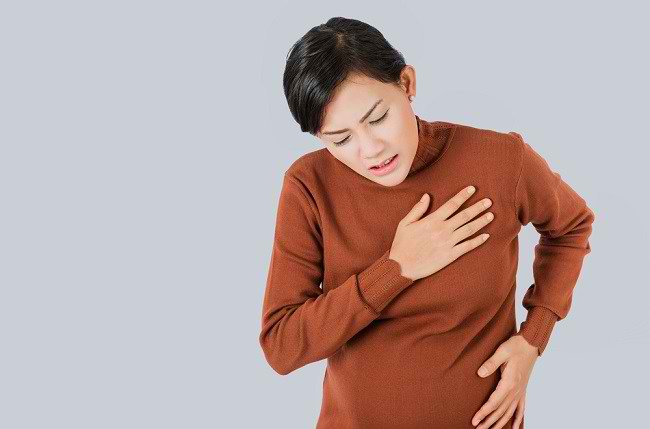Postpartum Cardiomyopathy: Heart Disease After Childbirth
Peripartum cardiomyopathy is a heart disorder that occurs at the end of pregnancy, before delivery, or several months after delivery. This condition is generally rare, but if left untreated, peripartum cardiomyopathy can lead to dangerous complications.
Peripartum cardiomyopathy is a type of cardiomyopathy that occurs in women who are pregnant or have recently given birth. This disease can appear near the time of delivery or the days, weeks, and even months (at least 4–5 months) after delivery.

Peripartum cardiomyopathy is characterized by weakening of the heart muscles, thus weakening the heart's ventricle on the left. The left heart chamber is the part of the heart that pumps blood around the body.
As a result of this condition, the heart cannot pump and flow blood properly throughout the body. In severe conditions, heart failure can occur.
Signs and Symptoms of Peripartum Cardiomyopathy
Peripartum cardiomyopathy often appears suddenly and is often not realized by the sufferer. Women who experience peripartum cardiomyopathy will usually experience symptoms similar to those of heart failure, namely:
- Tires easily and fatigues
- Heart palpitations
- Shortness of breath when lying down or doing activities
- Frequent urination at night
- Dizziness
- Chest pain
- Swelling of the legs and ankles
- Cough
In mild cases, peripartum cardiomyopathy may not show characteristic symptoms. Conversely, in more severe cases, symptoms such as shortness of breath, swelling, and chest pain can get worse and last a long time after delivery.
If you are pregnant or have just given birth and feel some of the symptoms above, you should immediately consult a doctor. The reason is, if treated late, cardiomyopathy conditions during late pregnancy or postpartum can cause serious complications, such as:
- Irregular heartbeat (arrhythmia)
- Heart valve abnormalities
- Heart failure
- Death
Causes and Risk Factors for Peripartum Cardiomyopathy
The cause of peripartum cardiomyopathy is not certain. However, this condition is known to be related to the performance of the heart muscle which gains weight during pregnancy.
During pregnancy, the heart muscle will pump up to 50 percent more blood than when not pregnant. This is because the fetus must get a supply of oxygen and nutrients from pregnant women.
Apart from these factors, there are several other factors that can also increase the risk of developing peripartum cardiomyopathy, including:
- Being overweight or obese
- Twin pregnancy
- Certain diseases, such as hypertension, preeclampsia, diabetes, and disorders of the heart such as myocarditis, cardiomyopathy or weak heart, and coronary heart disease
- Malnutrition or malnutrition
- Smoking habits or consuming alcoholic beverages during pregnancy
- Age over 30
- The side effects of certain drugs, such as tocolytic drugs to reduce uterine contractions and narcotics, for example (cocaine)
Diagnosis and Treatment of Peripartum Cardiomyopathy
It is important that peripartum cardiomyopathy be detected early by a doctor so that it can be treated immediately. To diagnose this condition, the doctor will perform a physical examination, gynecology, and supporting examinations such as chest X-rays, CT scans, echocardiography, electrocardiography (EKG), and blood tests.
If you are diagnosed with peripartum cardiomyopathy, your doctor may advise you to stay in the hospital. To treat peripartum cardiomyopathy, the doctor will prescribe the following drugs:
- ACE-inhibitor and beta inhibitor class drugs to help stabilize blood pressure and ease the heart's work
- Digitalis drugs to strengthen the heart's pumping function
- Anticoagulant drugs or blood thinners to prevent blood clots from forming, which can worsen cardiomyopathy
- Diuretic drugs to reduce the buildup of fluids from the body
The doctor will determine the right type of treatment according to the condition of you and the fetus in the womb or newborn.
Apart from administering medication, your doctor will also advise you to follow a low salt diet, limit your fluid intake, avoid cigarette smoke, and abstain from drinking alcohol.
After your condition improves and your heart has improved, the doctor will allow you to go home from the hospital, while still giving medication and advising you to return to control after the medicine runs out.
To treat severe or unsuccessful peripartum cardiomyopathy, doctors can perform several other treatment steps, such as inserting a breathing device to surgery, such as a heart transplant.
Efforts to Prevent Peripartum Cardiomyopathy
Women who have had peripartum cardiomyopathy are at risk of having it again in their next pregnancy. If the disease occurs for the second time, the peripartum cardiomyopathy may get worse.
In addition, to prevent peripartum cardiomyopathy, doctors will generally advise patients to live a healthy lifestyle, such as:
- Monitor weight gain during pregnancy and keep it ideal
- Consult an obstetrician during pregnancy
- Maintain a healthy diet during pregnancy and limit your high salt intake
- Quit smoking, consuming alcoholic beverages, and using certain drugs
- Regular light exercise, such as taking yoga classes, pregnancy exercises, and other activities, such as relaxation and meditation to avoid stress
- Get enough rest and not do strenuous physical activity
In order for peripartum cardiomyopathy to be detected early, it is important that you regularly check your uterus with your doctor, especially if you have risk factors for developing this condition, such as a history of heart problems, preeclampsia, or hypertension.
Label : Health
Comments
Post a Comment